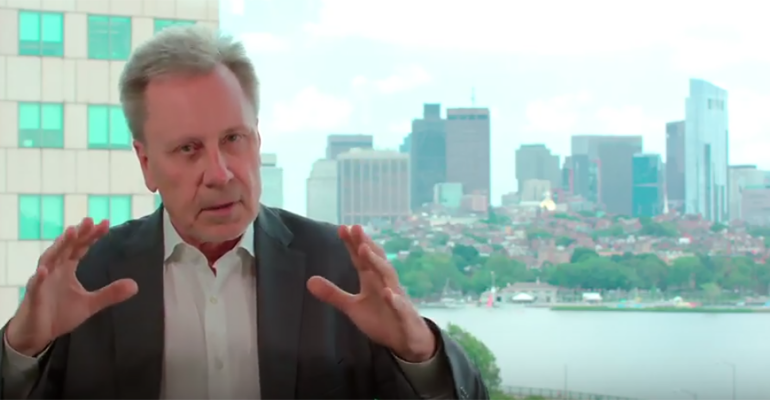Professor John Davis is one of the world’s leading authorities on family enterprises. How would he advise business families and their advisors to prepare for a world of ever-more-rapid technological change?
Davis has advised multi-generational family enterprises in more than 65 countries. His professional training includes management, psychology and economics. He’s also spent decades teaching at the Harvard Business School and currently leads the family enterprise programs at the MIT Sloan School of Management.
Mitzi Perdue: What are the skills family enterprises should be nurturing now to thrive in the future?
John Davis: The workforce of the future will look quite different than it does today. Not only are existing jobs being threatened, but new jobs will emerge that don’t exist today. A combination of reskilling and upskilling is going to be important in order for talent to keep pace with innovation..
While there are many more skills required than these, below are four important categories that will be increasingly needed in the next economy:
- Digital/technology competencies will be a key need. One source said that of the jobs created in the United States in the last 10 years, two-thirds were digital related jobs. Talent will need to be able to work with existing and emerging technologies across industries.
- Interpersonal skills will be increasingly sought after as these aren’t as authentically conveyed by machines. Examples of the interpersonal skills that will be in increasing demand are: caring, empathy, listening, reading a room, teaming/collaborating, ability to influence and a global citizenship mindset.
- The ability to create will be essential. These skills include creativity, experimentation, failing and learning, innovation, entrepreneurship, foresight, envisioning, intuition and design.
- Talent will need to be flexible in this next economy, prioritizing one’s ongoing growth and development. Rigidity will be detrimental. These skills include the ability to be curious, problem-solve, change, adapt, pivot, be resilient and agile, actively learn and reskill yourself.
MP: You recently moved to MIT after 21 years at the Harvard Business School. Comment?
JD: I moved to the faculty at MIT because of its focus on the future. MIT is way ahead of other schools’ understanding of what’s happening and changing in our world. In many ways, the MIT ecosystem—with its many labs—is creating the Fourth Industrial Revolution that we’re all preparing for.
My work at MIT focuses on helping family enterprises prepare for the ways in which the future will impact them—and there are many. There are forces affecting businesses, families, ownership, investing, philanthropy, governance, talent and virtually every aspect of a family enterprise. Technology is only one force we hear about a lot, but there are others that I’m paying close attention to and helping families prepare for.
MP: And these are?
JD: In addition to technology, I am watching social and demographic changes, the rise of the Millennial generation, globalization trends, industry disruptions, environmental shifts, political movements, the actions of governments, and other forces. These are opening up opportunities for families, giving rise to some challenges, and revealing the need to adapt, which is not so easy.
Family enterprises are inherently wired for stable or gradually changing environments, because gradual change is more compatible with family culture. Most enterprising families aren’t wired to flex with substantial change, fast change or disruptive change (although some do this admirably). Family companies generally do well with managing economic cycles, but industry disruptions, which happen more frequently than economic cycles, can have more profound impacts on a company or industry, and family companies need to build new practices for the new business world. Enterprising families need to:
- Learn a new formula for success that will allow them to endure in the next economy.
- Continue to manage the evergreen issues facing family companies (such as succession planning and family relationships).
MP: If members of a business family wanted to learn more about how to thrive in the new world of technological change, where could they go?
JD: I’ve launched two programs at MIT in 2019 (Future Family Enterprise, May 5-10, and Founder to Family, July 22-26) to help families at specific stages in the life cycle learn to succeed in new ways with new mindsets. I invite families who want to learn about these experiences to be in touch with me at [email protected].
MP: There’s a quote attributed to Darwin but that’s probably a paraphrase: "It is not the strongest that survives; but the species that survives is the one that is able best to adapt and adjust to the changing environment in which it finds itself." For family enterprise members and for those who advise them, your work can influence their survival. On behalf of the readers of Trusts & Estates Magazine, thank you.
Mitzi Perdue is a professional public speaker and author of the book, HOW TO MAKE YOUR FAMILY BUSINESS LAST a Treasury of Checklists, Templates, Resources, and Tips. Visit her website, www.MitziPerdue.com. Or contact her at [email protected].





